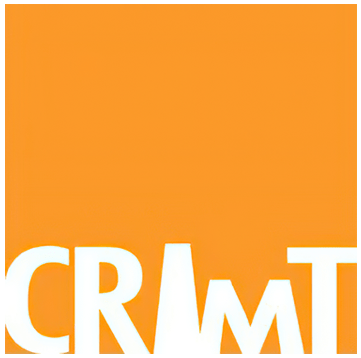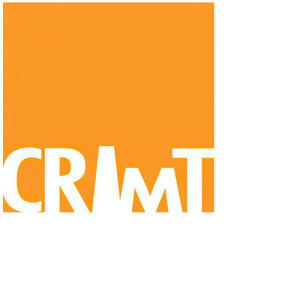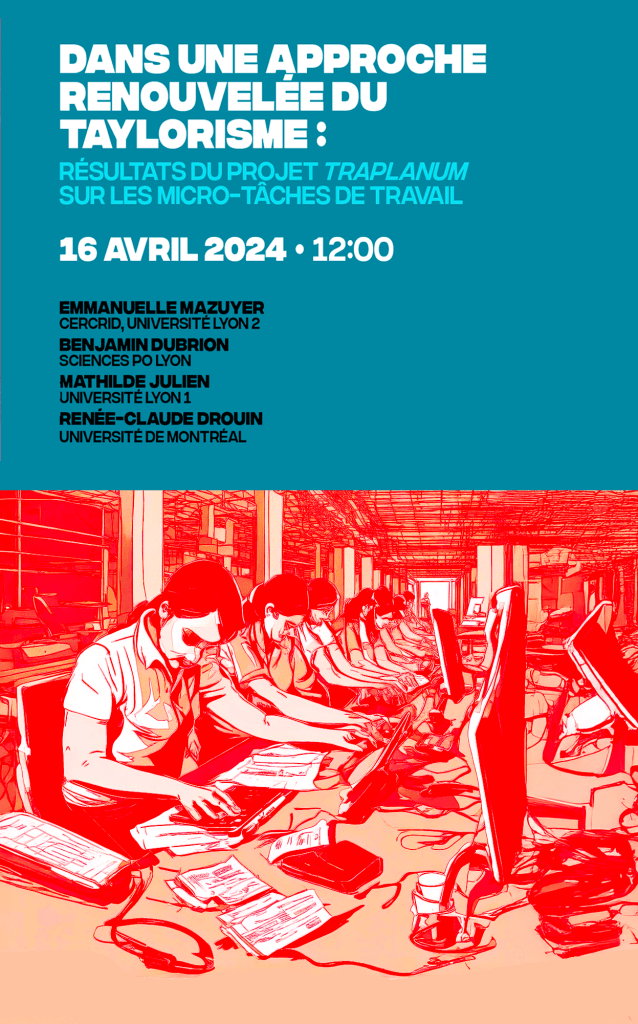
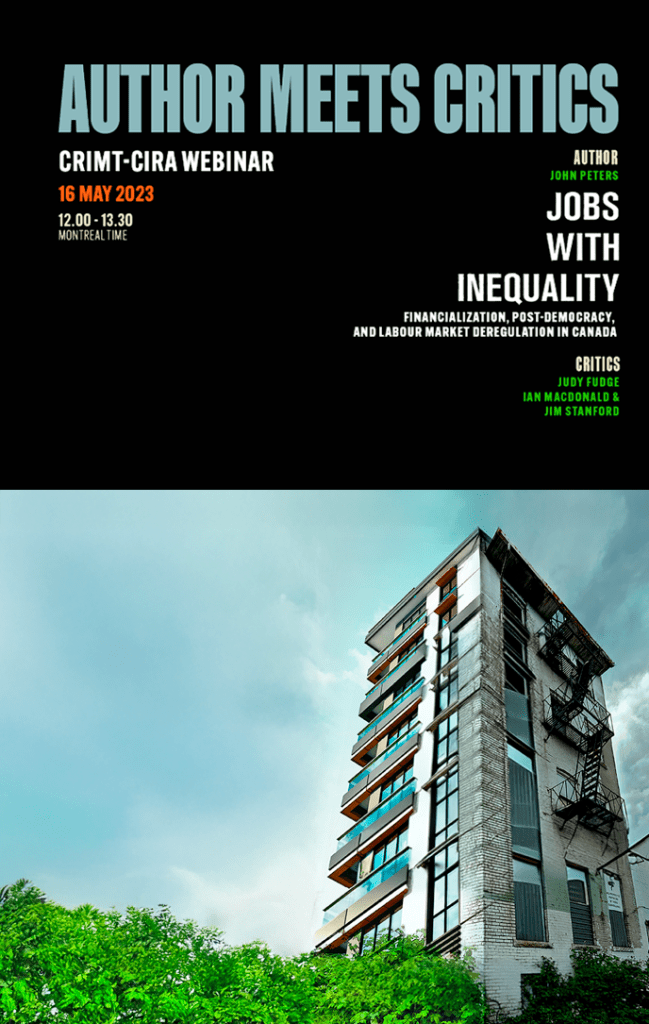


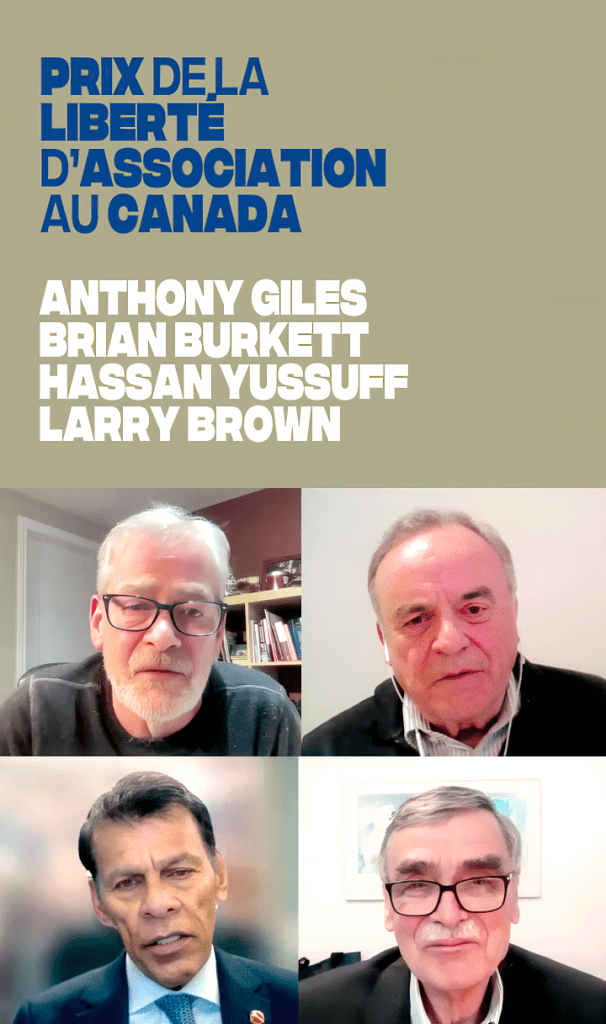
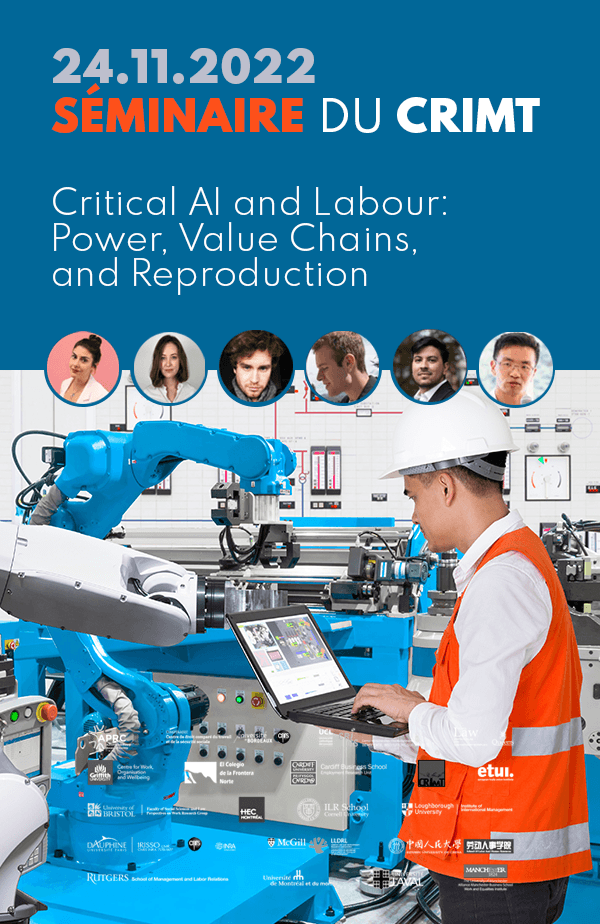
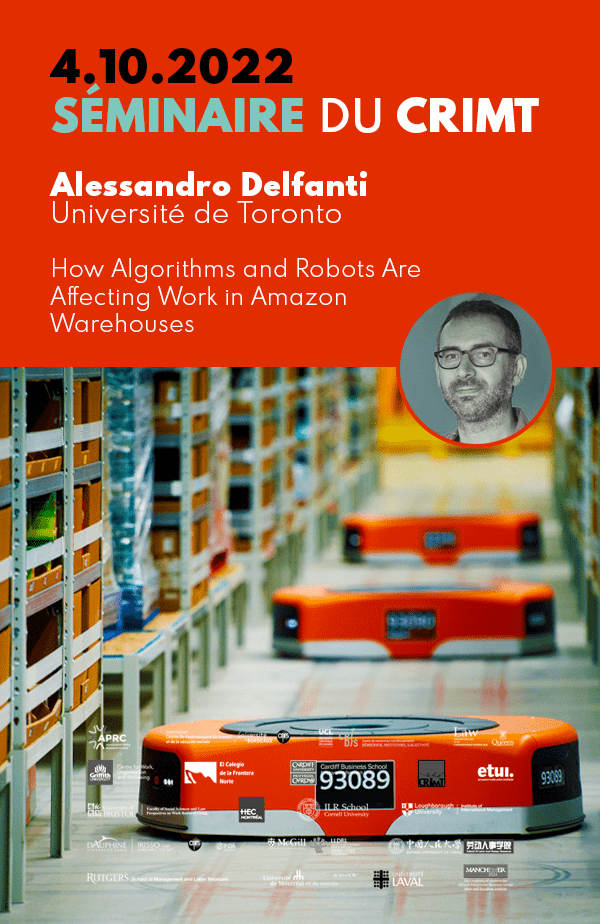
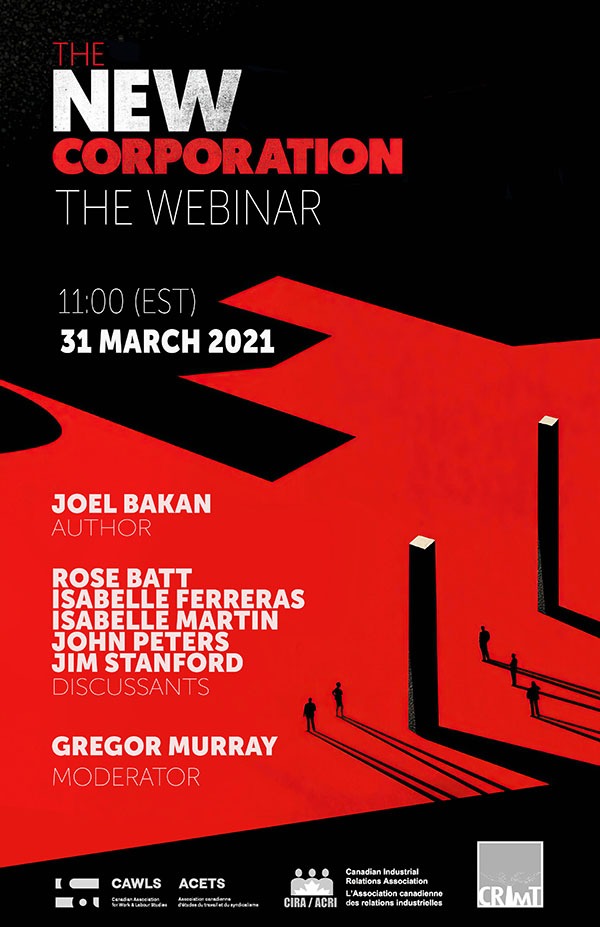
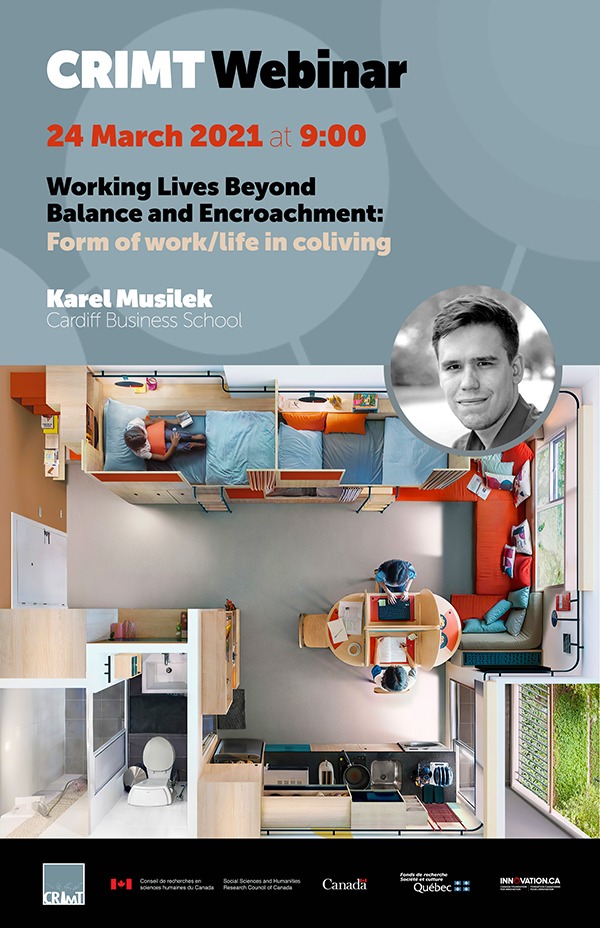



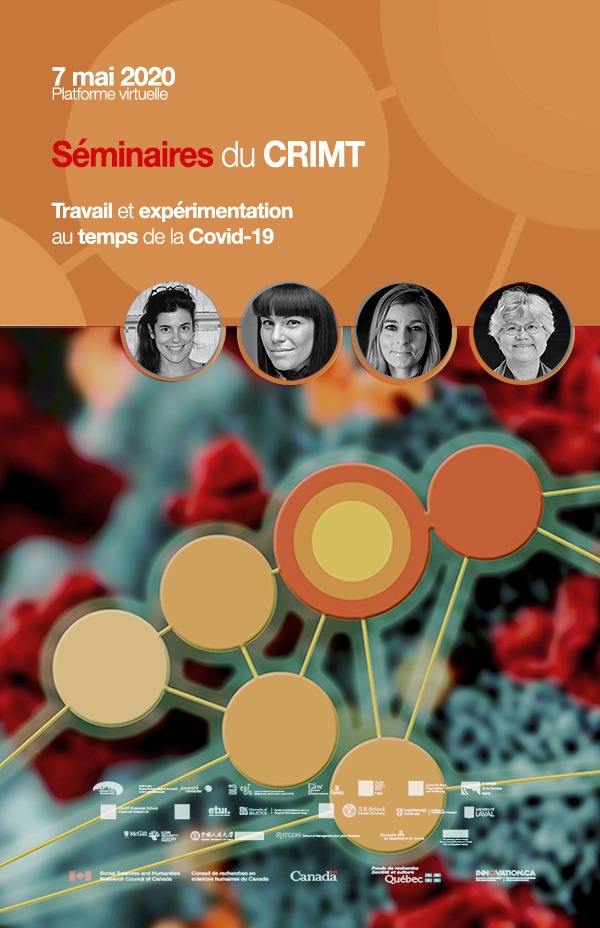
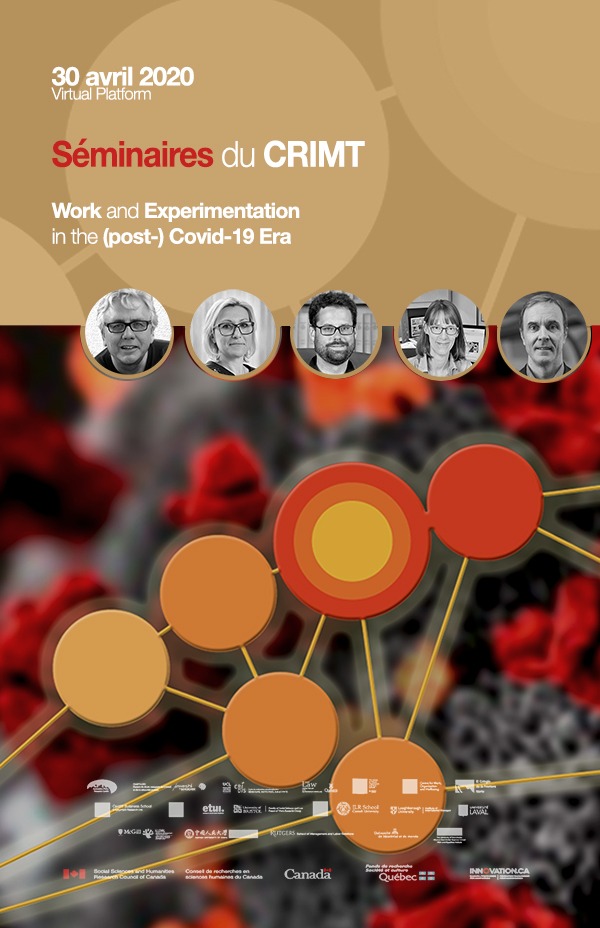
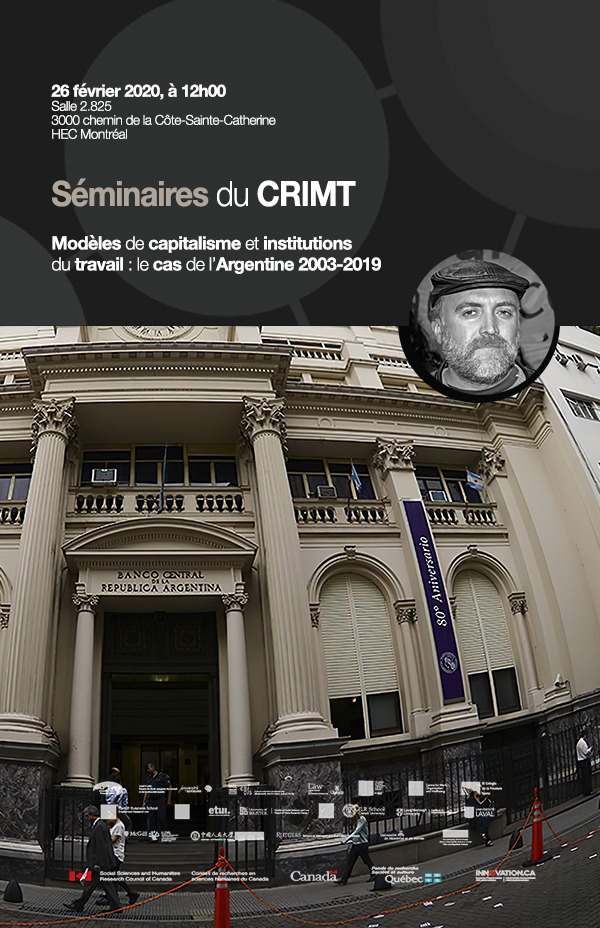
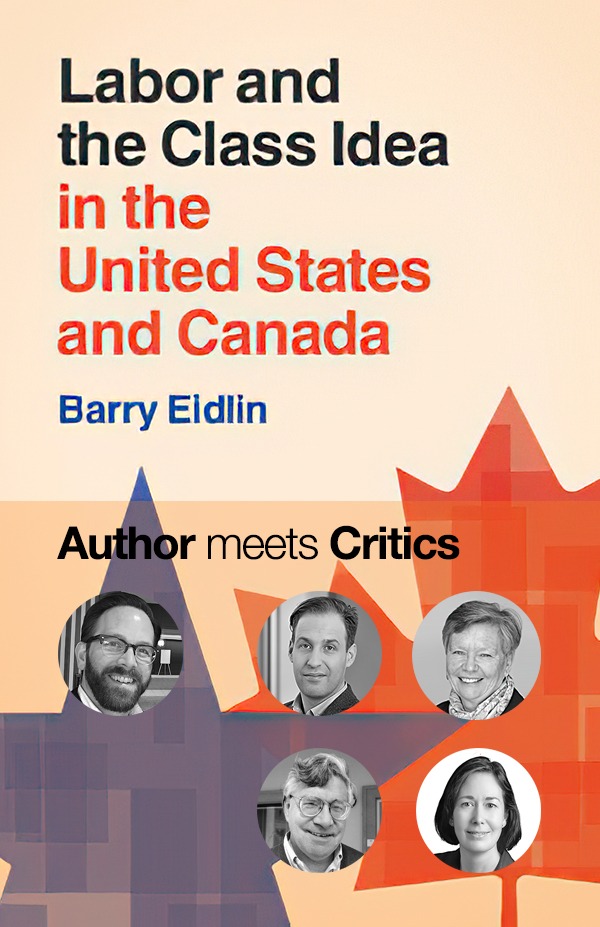
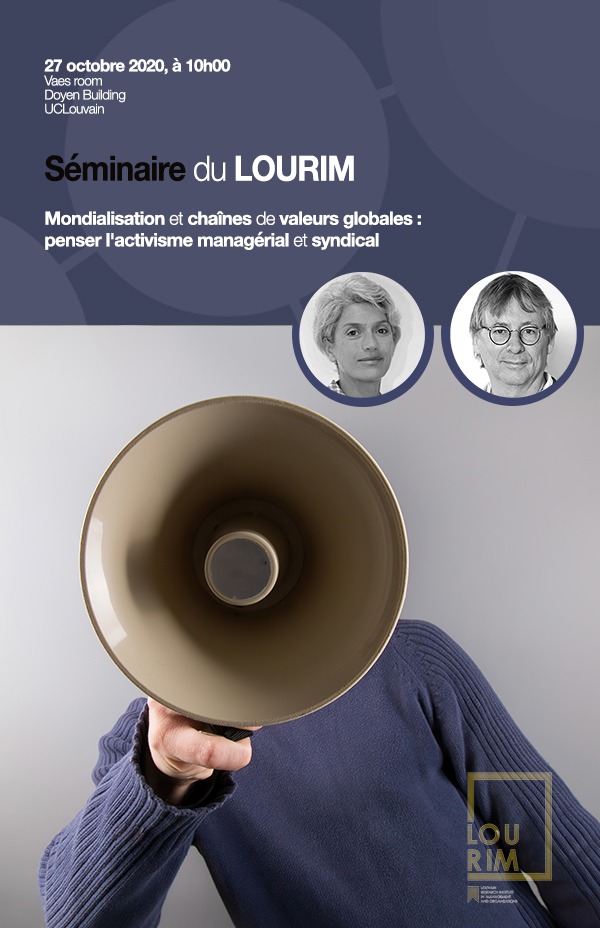
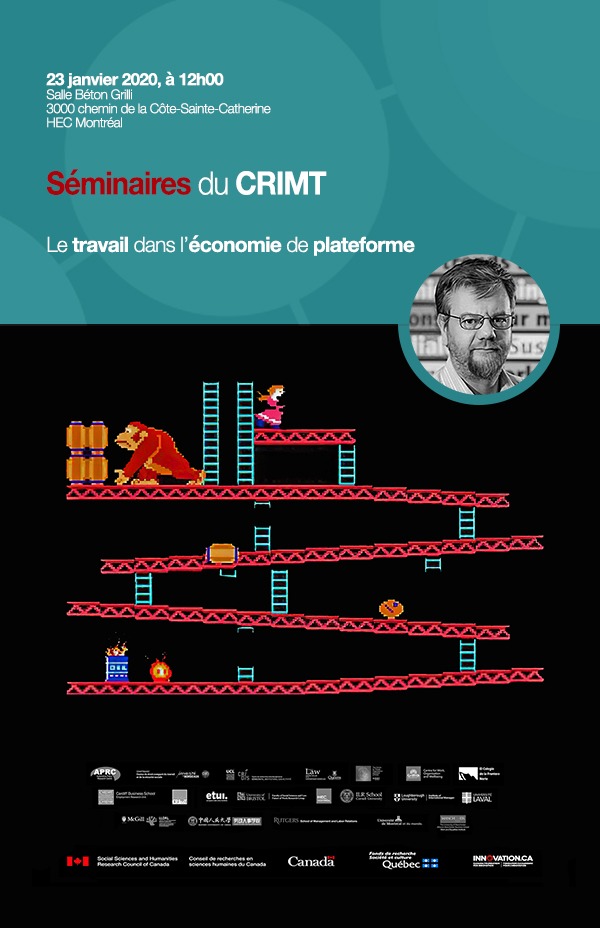
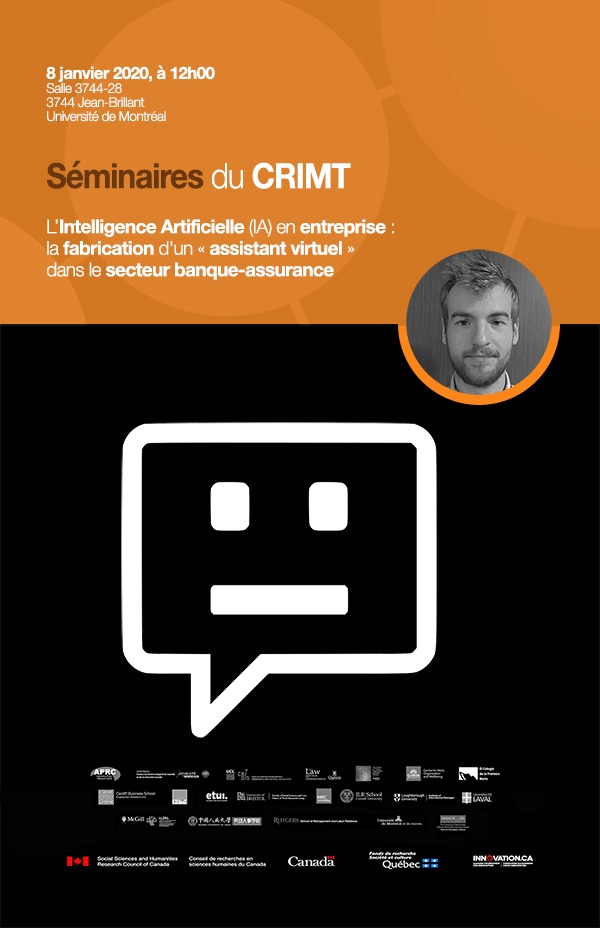
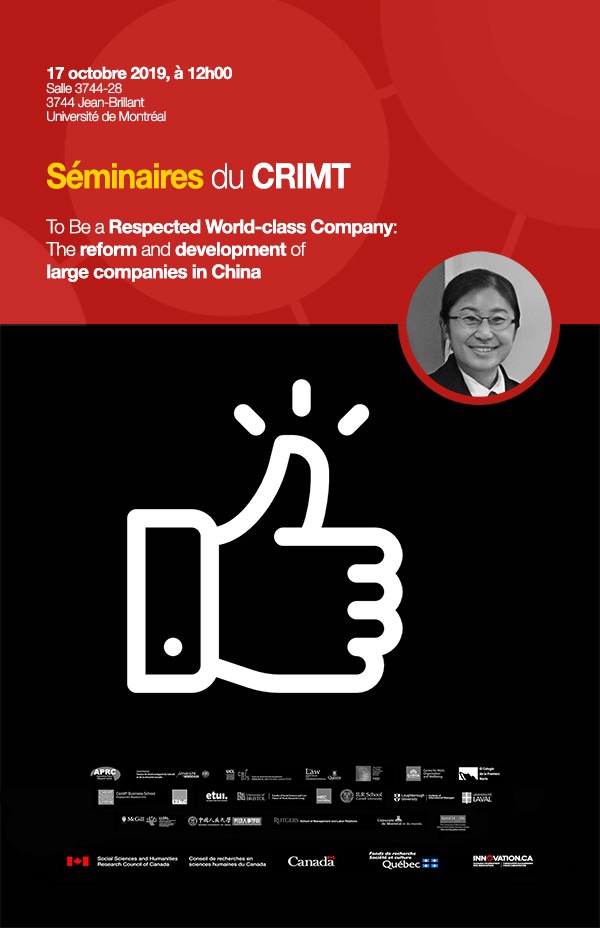
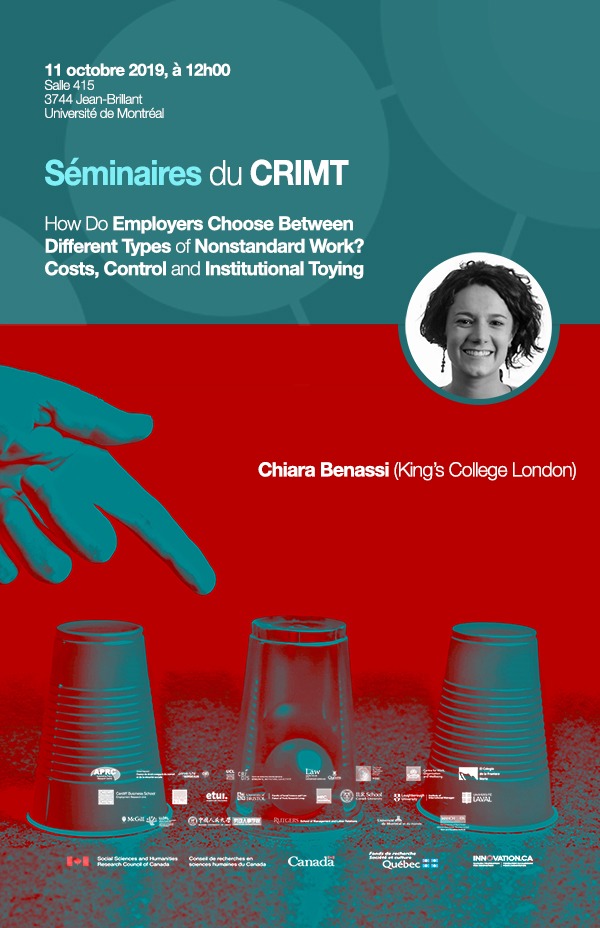
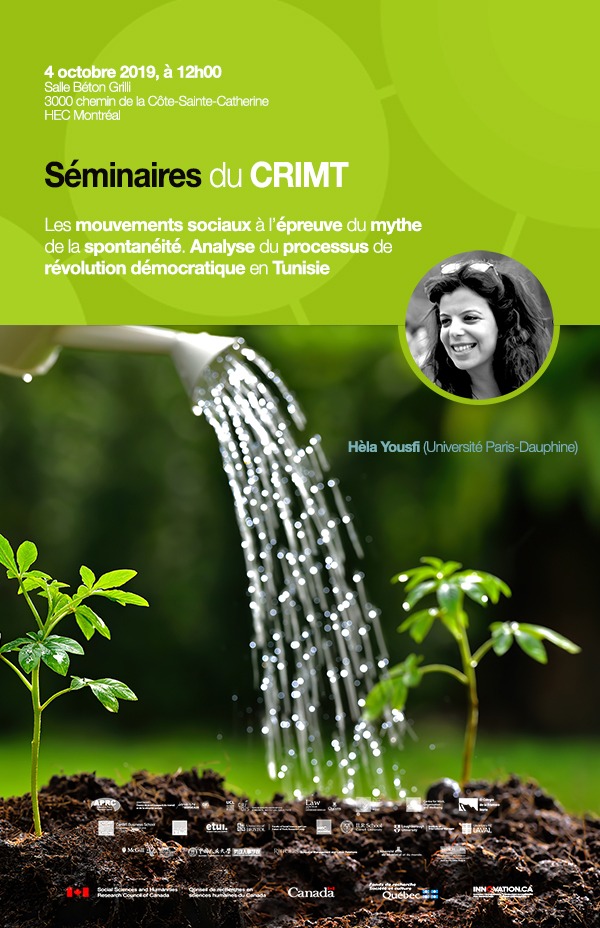
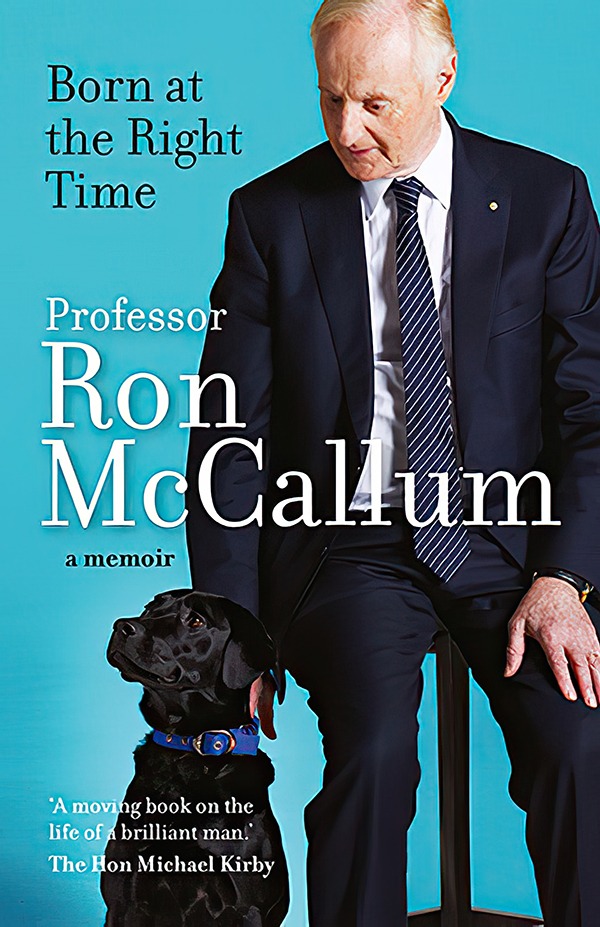

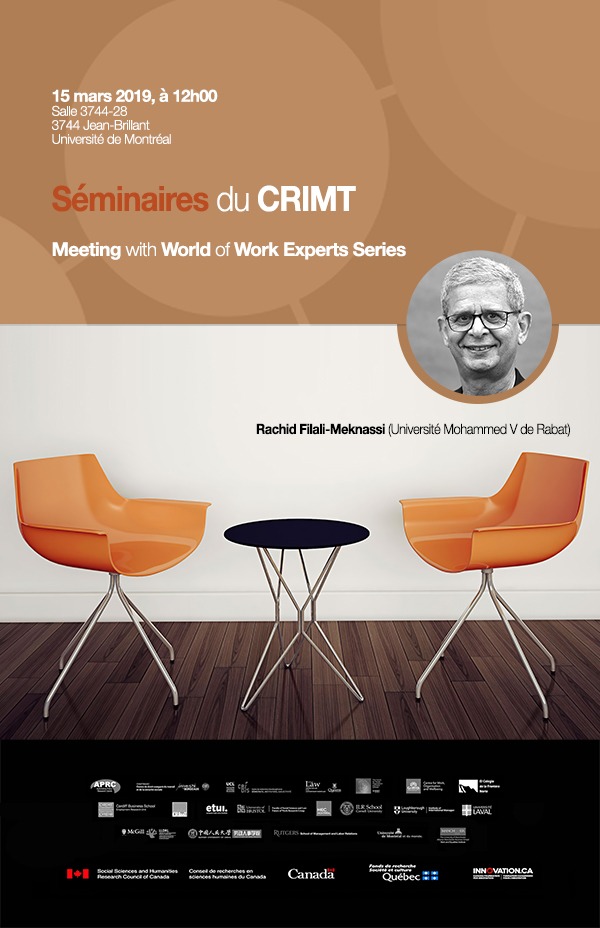

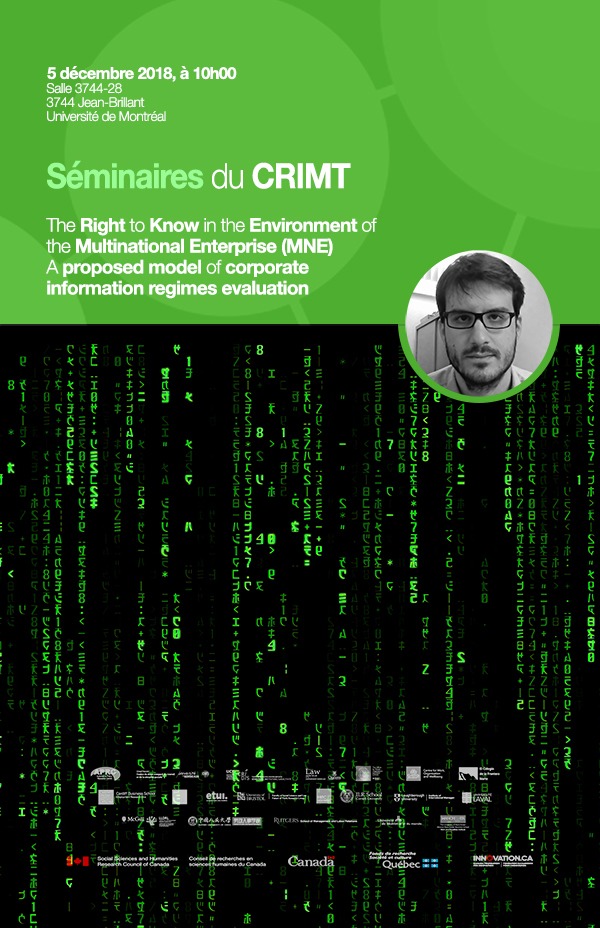
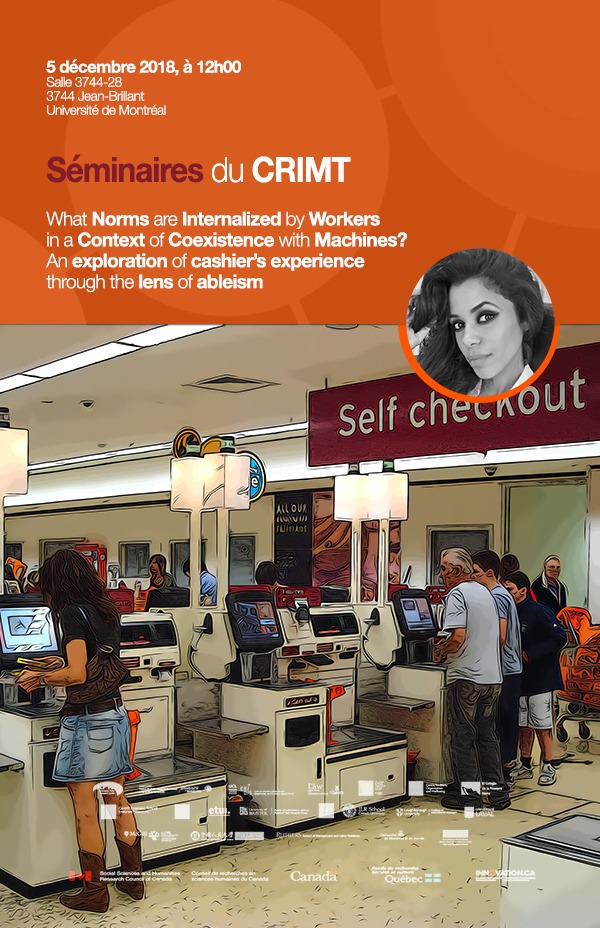
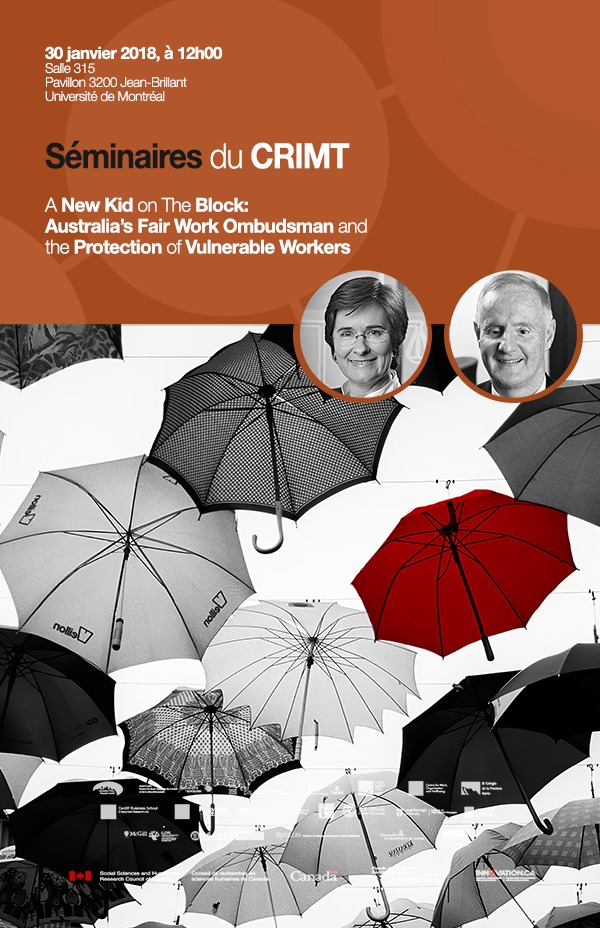
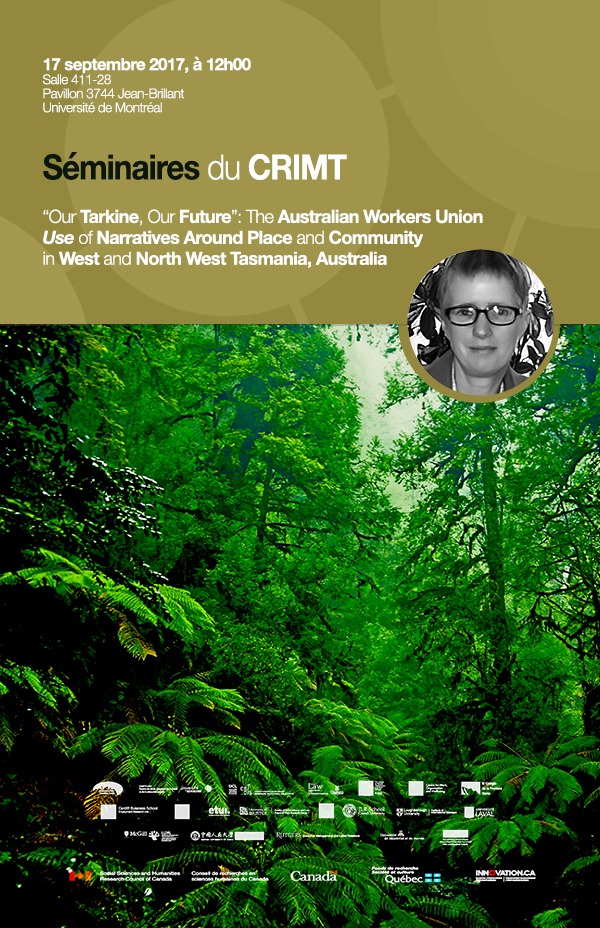
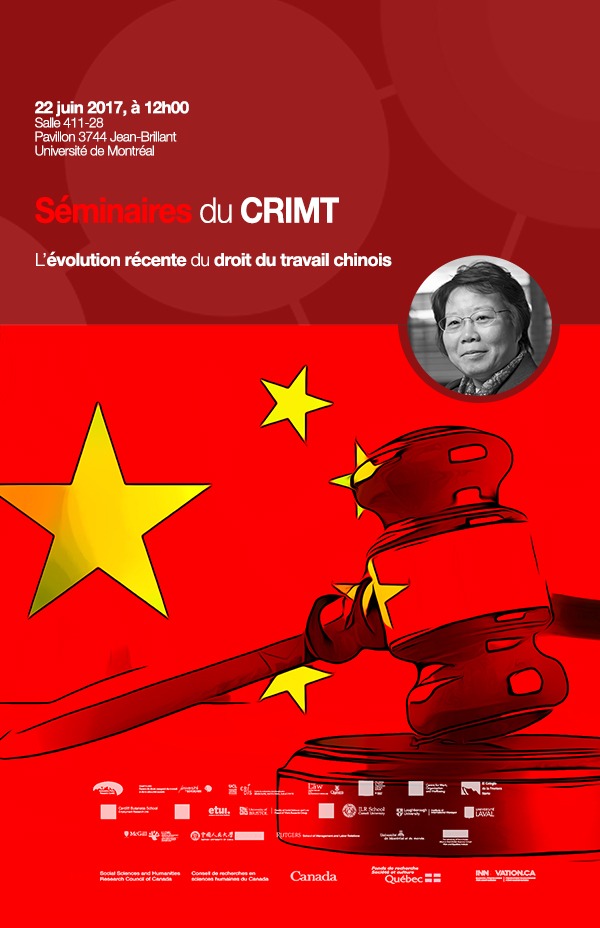
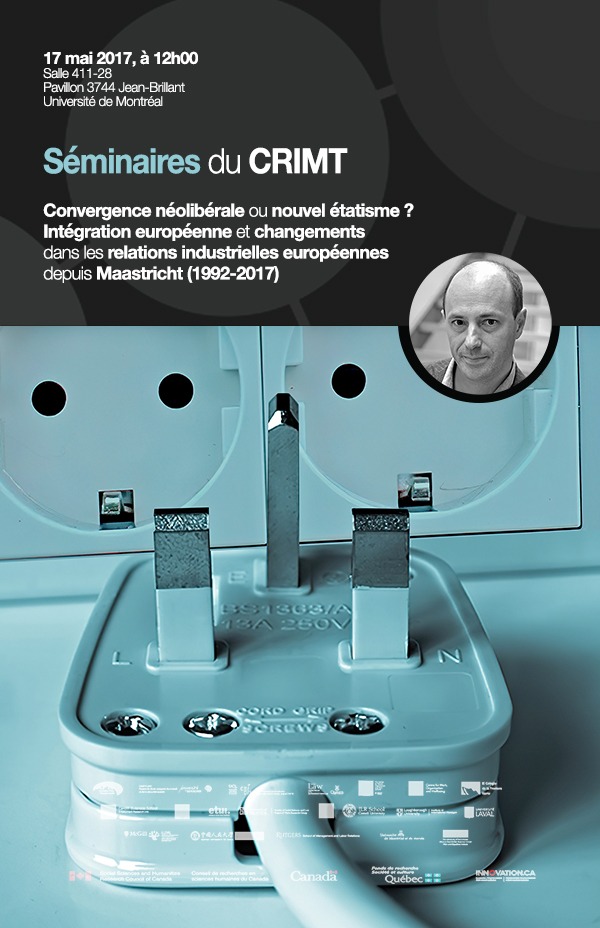
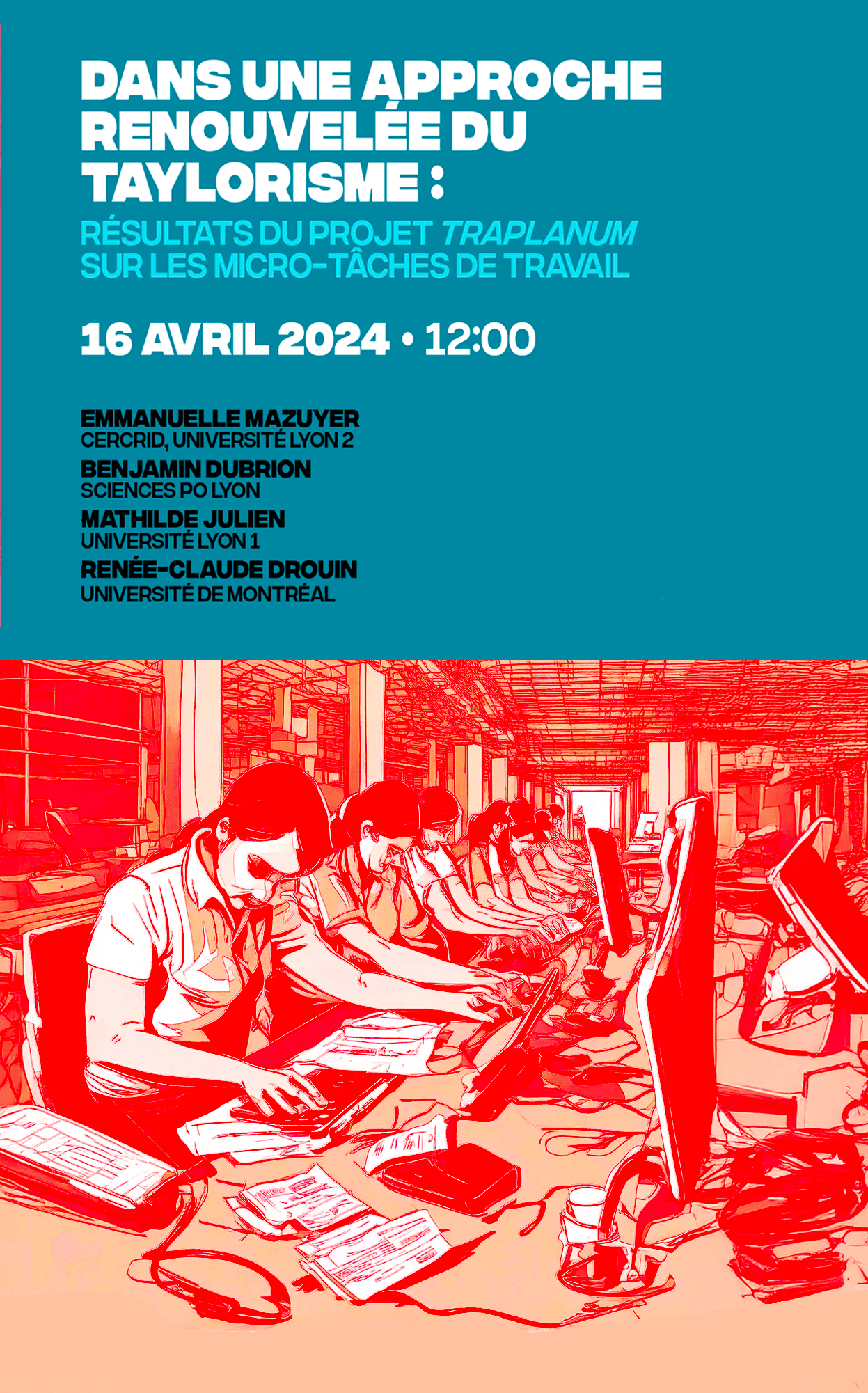
16 April 2024
Emmanuelle Mazuyer (CERCRID, Université Lyon 2), Benjamin Dubrion (Sciences Po Lyon), Mathilde Julien (Université Lyon 1) & Renée-Claude Drouin (Université de Montréal)
Hybrid seminar
Dans une approche renouvelée du taylorisme: résultats du projet TraPlaNum sur les micro-tâches de travail
Digital labor platforms are often perceived merely as intermediaries connecting clients with a diverse array of workers whose legal status remains ambiguous. However, in recent years, their operational models have garnered attention for fostering new forms of work that blur the lines of traditional employment. These platforms frequently extend beyond the role of a mere intermediary, sometimes engaging in practices reminiscent of those of an employer.
At the intersection of law and economics, this seminar aimed to explore how legal frameworks, particularly in France, govern the employment relationships between platforms and workers. It specifically focused on micro-task platforms that offer short, simple, and repetitive tasks, echoing the principles of Taylorism. This analysis was preceded by a review of more widely recognized mobility platforms.
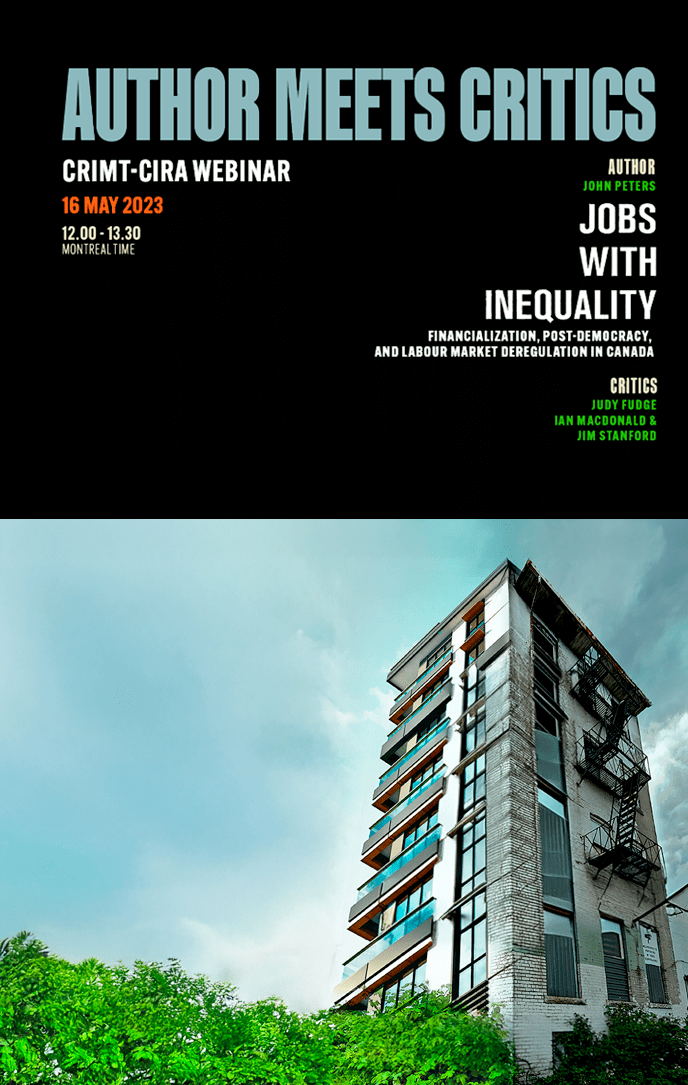
16 May 2023
John Peters (Memorial University), Judy Fudge (Université McMaster), Ian MacDonald (Université de Montréal), Jim Stanford (Centre for Future Work) & Gregor Murray (Université de Montréal)
Virtual platform
Jobs with Inequality: Financialization, Post-Democracy, and Labour Market Deregulation in Canada
The Interuniversity Research Centre on Globalization and Work (CRIMT) and the Canadian Industrial Relations Association (ACRI-CIRA) were pleased to host a public webinar focused on John Peters’ book titled Jobs with Inequality: Financialization, Post-Democracy, and Labour Market Deregulation in Canada (University of Toronto Press, 2022).
Utilizing new fiscal and income data, John Peters explores the emergence of inequality in Canada by examining the concepts of post-democracy, financialization, and labor market deregulation. Timely and innovative, Jobs with Inequality elucidates how and why businesses and governments have been able to reshape economic rules to benefit a select few, while also analyzing the reasons behind the consistent failures of progressive efforts to reverse these trends.
During this discussion with the author, Judy Fudge (McMaster University), Ian MacDonald (University of Montreal), and Jim Stanford (Centre for Future Work) shared their key insights from the book. The conversation was moderated by Gregor Murray (University of Montreal).

10 May 2023
Justice Rosalie Abella, Dionne Pohler (University of Saskatchewan), Gilles Trudeau (CRIMT, Université de Montréal), Adelle Blackett (CRIMT, McGill University), Steven Barrett (Goldblatt Partners), Louis Lebel (ancien juge de la Cour suprême du Canada), Kerry Rittich (University of Toronto), Gregor Murray (CRIMT, Université de Montréal)
Virtual platform
Canadian Freedom of Association Award
In 2016, the Canadian Industrial Relations Association (CIRA) announced a significant donation from Professor Emeritus Roy J. Adams to establish an annual award. This award aims to recognize the exceptional contributions of an individual or organization to the understanding and respect for international standards related to the right to unionize and collective bargaining, to which Canada is committed.
In 2022, this honor was awarded to the Honorable Rosalie Abella, a retired Justice of the Supreme Court of Canada. Throughout her career, Justice Abella has been dedicated to advocating for, promoting, and upholding fundamental human rights and freedoms, including the right to associate, the right to unionize, and the right to engage in collective bargaining.
That year, CIRA partnered with the Interuniversity Research Centre on Globalization and Work (CRIMT) to host a virtual award ceremony, which took the form of an interactive roundtable discussion.

6 March 2023
Ian Greer (ILR School, Cornell University), Charles Umney (Leeds University), Étienne Cantin (Université Laval), Philippe Pochet (ETUI), Valeria Pulignano (KU Leuven) & Vincent Pasquier (HEC Montréal)
Virtual platform
Marketization. How Capitalist Exchange Disciplines Workers and Subverts Democracy
The CRIMT was pleased to invite the public to participate in a webinar focused on the book by Ian Greer (ILR School, Cornell University) and Charles Umney (Leeds University) titled Marketization: How Capitalist Exchange Disciplines Workers and Subverts Democracy (London: Bloomsbury, 2022). This work explores how the state and capital utilize markets to discipline the working class. The authors provide a comprehensive overview of European political economy, from the European Commission to the workplace itself, demonstrating how neoliberal principles manifest as market mechanisms that transform the lives of workers.
During this informal discussion with the authors, Étienne Cantin (Université Laval), Philippe Pochet (ETUI), and Valeria Pulignano (KU Leuven) shared the key insights they gained from the book. Vincent Pasquier (HEC Montréal) served as the facilitator for this conversation.
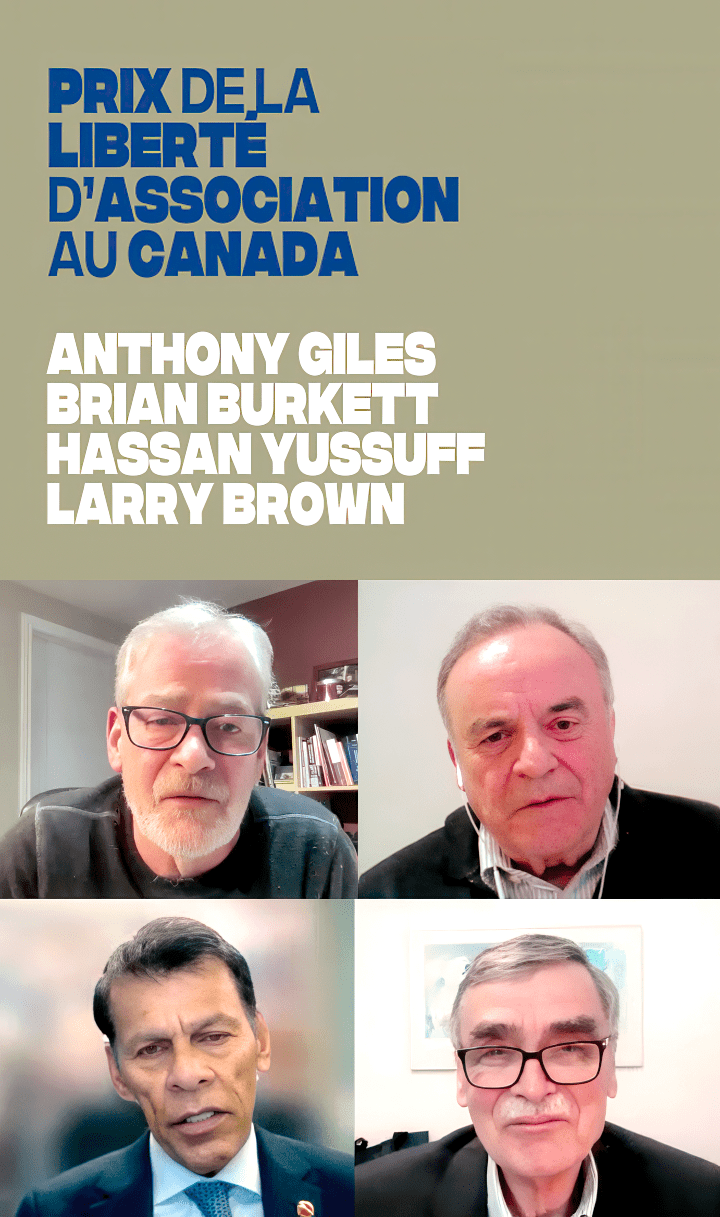
30 January 2023
Anthony Giles (Affaires internationales et intergouvernementales du travail, Programme du travail, Emploi et Développement social Canada), Brian Burkett (Conseil canadien des employeurs), Hassan Yussuff (Congrès du travail du Canada), Larry Brown (National Union of Public and General Employees) & Gregor Murray (CRIMT, Université de Montréal)
Virtual platform
Canadian Freedom of Association Award
In 2016, the Canadian Industrial Relations Association (CIRA) announced a significant donation from Professor Emeritus Roy J. Adams to establish an annual award. This award aims to honor the exceptional contributions of individuals or organizations to the understanding and respect for international standards related to the right to unionize and engage in collective bargaining, to which Canada is committed.
The 2021 Canadian Freedom of Association Award was presented to individuals and organizations that played a pivotal role in the ratification of the ILO Convention No. 98 on the right to organize and collective bargaining (1949). This event is particularly significant as it marks Canada’s ratification of the eighth fundamental convention of the International Labour Organization (ILO). The recipients included Anthony Giles and the International and Intergovernmental Labour Affairs, Employment and Social Development Canada; Brian Burkett and the Canadian Employers Council; Hassan Yussuff and the Canadian Labour Congress; as well as Larry Brown and the National Union of Public and General Employees.
That year, CIRA partnered with the Interuniversity Research Centre on Globalization and Work (CRIMT) to host a virtual award ceremony, which took the form of an interactive roundtable discussion.

24 November 2022
Milagros Miceli (Weizenbaum Institute for the Networked Society /Distributed AI Research Institut), Kelle Howson (Research ICT Africa & Institute for Economic Justice), Clément Le Ludec (Télécom Paris – Institut polytechnique de Paris), Maxime Cornet (Télécom Paris – Institut polytechnique de Paris), Julian Posada (Yale University), Kai-Hsin Hung (HEC Montréal)
Virtual platform
Critical AI and Labour: Power, Value Chains, and Reproduction
CRIMT joined OBVIA for this online workshop entitled Critical AI and Labour: Power, Value Chains, and Reproduction. It gathered global experts examining the countless workers who are required to help build, maintain, and test artificial intelligence (AI) systems in what Mary Gray and Siddharth Suri at Microsoft Research refer to as “ghost work” and what Lilly Irani calls “human-fuelled automation.” It opened with an inquiry into a power-aware perspective of “studying up” machine learning (ML) datasets. Then, it examined the workers in the global value chains of AI production between France and Madagascar. Lastly, it expanded this by looking at the unsustainable reproductive labour it requires on families and communities. It ended with a lively discussion of possible solutions with the audience and members of the wider AI and labour communities. 

4 October 2022
Alessandro Delfanti (Université de Toronto, Institute of
Communication, Culture, Information and Technology)
Hybrid seminar
How algorithms and robots are affecting work in Amazon
Warehouses
Dr. Alessandro Delfanti researches labour and technology, the politics of digital media, and digital countercultures. He recently published a book titled The Warehouse: Humans and Robots at Amazon, which addresses the relation between living labour and technology at the e-commerce giant. He also organized the international conference Log Out! Worker Resistance Within and Against the Platform Economy. Another research focus is the role of robots in re-organizing the
labour process. In his previous work, he has theorized the relation between hacking and digital capitalism.
In this seminar, the author explored the way algorithms and robots are affecting work in Amazon Warehouses. 

31 March 2021
Joel Bakan (University of British Columbia), Rose Batt (Cornell University), Isabelle Ferreras (UCLouvain), Isabelle Martin (Université de Montréal), John Peters (Laurentian University), Jim Stanford (Centre for Future Work), Gregor Murray (Université de Montréal)
Virtual platform
The New Corporation. The webinar
With CEO compensation soaring, income inequality at all-time highs, the planet facing ecological disaster, and democracy in a precarious situation, Joel Bakan and Jennifer Abbott have again teamed up to make the movie The New Corporation: The Unfortunately Necessary Sequel. And, in printed form, from the author of The Corporation: The Pathological Pursuit of Profit and Power (2004) comes The New Corporation: How “Good” Corporations are Bad for Democracy (2020).
This cry for social justice, deeper democracy and transformative solutions merits close attention from researchers and actors in the world of work. This is why we convened a conversation in the form of a webinar on The New Corporation, which took place on Wednesday, March 31st. It was an opportunity to bring together the book author and movie co-creator, Joel Bakan, with a stellar cast of specialists in a dialogue about corporations, work and democracy.
This Conversation on The New Corporation was an initiative of the CRIMT Partnership on Institutional Experimentation for Better Work, in collaboration with the Canadian Association for Work & Labour studies (CAWLS) and the Canadian Industrial Relations Association (CIRA).


24 March 2021
Karel Musilek (Cardiff Business School)
Virtual platform
Working Lives Beyond Balance and Encroachment: Form of work/life in coliving
Sociological discussion of working and economic lives has tended to focus on questions of work/life balance and encroachment of work into non-work life. While this research provides useful insights, it has insufficiently reflected the transformation to practices and socio-material arrangements of working lives. Yet, it is within these practices and arrangements where the important extensive demands and intensification of work are accommodated and reproduced.
To start rectifying this lacuna, the author draws on and extend the notion of ‘forms of life’ as a lens through which to conceptualize working lives, how they are shaped and what social practices and arrangements sustain them. He explores this issue through a unique ethnographic study of coliving – a new way of living and novel site of sociological investigation – which seeks to modify domestic and personal lives in lines with demands of extensive and intensive work and ideals of professional and entrepreneurial success.


18 November 2020
Julie Battilana (Harvard University), Isabelle Ferreras (UCLouvain), Marguerite Mendell (Concordia University), Gregor Murray (Université de Montréal), Andrew Jackson (Broadbent Institute), Esteban Kelly (U.S. Federation of Worker Cooperatives), Lana Payne (UNIFOR), Jim Stanford (Centre for Future Work)
Virtual platform
Democratizing Work: A Conversation on the Lessons of the Current Pandemic for the World of Work
“Working humans are so much more than ‘resources’. This is one of the central lessons of the current crisis.” So begins a manifesto drafted in the spring of 2020 in response to the Covid-19 pandemic, which argues that work needs to be democratized, de-commodified and made sustainable.
The Manifesto has been translated in multiple languages and supported across the globe. This conversation on Democratizing Work, which took take place on Wednesday November 18th, was an opportunity to being together its authors with leading representatives and specialists from the world of work in a conversation about the Manifesto and current priorities for the pandemic and beyond.
The Conversation on Democratizing Work is an initiative of the CRIMT Partnership on Institutional Experimentation for Better Work, the Karl Polanyi Institute, and the Industry 4.0, Work and Employment Axis of the International Observatory of the Societal Impacts of AI and Digital Technology.

17 November 2020
Adelle Blackett (Université McGill), Isabelle Ferreras (UCLouvain), Dominique Méda (Université Paris-Dauphine), Marguerite Mendell (Concordia University), Gregor Murray (Université de Montréal), Nil Ataogul (Syndicat des travailleurs et travailleuses unis de l’alimentation et du commerce), Pierre-Antoine Harvey (Centrale des syndicats du Québec), Josée Lamoureux (Confédération des syndicats nationaux), Jonathan Vallée-Payette (Fédération des travailleurs et travailleuses du Québec)
Virtual platform
Démocratiser le travail: une conversation sur les leçons à tirer de la pandémie
“Working humans are so much more than ‘resources’. This is one of the central lessons of the current crisis.” So begins a manifesto drafted in the spring of 2020 in response to the Covid-19 pandemic, which argues that work needs to be democratized, de-commodified and made sustainable.
The Manifesto has been translated in multiple languages and supported across the globe. This conversation on Democratizing Work (in French), which took take place on Tuesday November 17th, was an opportunity to being together its authors with leading representatives and specialists from the world of work in a conversation about the Manifesto and current priorities for the pandemic and beyond.
The Conversation on Democratizing Work is an initiative of the CRIMT Partnership on Institutional Experimentation for Better Work, the Karl Polanyi Institute and the Industry 4.0, Work and Employment Axis of the International Observatory of the Societal Impacts of AI and Digital Technology.

13 November 2020
Genevieve LeBaron (University of Sheffield), Judy Fudge (McMaster University), Jonelle Humphrey (McMaster University)
Virtual platform
Combatting Modern Slavery. A conversation with Genevieve LeBaron, author of Combatting Modern Slavery: Why Labour Governance is Failing and What we Can do about it
Goal 8.7 of the United Nations (UN) Sustainable Development Goals calls on governments, companies and civil society to “take immediate and effective measures to eradicate forced labour and end modern slavery”. In her important new book Combatting Modern Slavery: Why Labour Governance is Failing and What Can we Do about it. (Polity 2020), Professor Genevieve LaBaron lifts the lid on a labour governance regime that is severely flawed and limited. She takes a close-up look at the millions of corporate dollars spent on anti-slavery networks, NGO partnerships, lobbying for new transparency legislation, and investment in social auditing and ethical certification schemes, to show how such efforts serve to bolster corporate growth and legitimacy as well as government reputations, whilst failing to protect the world’s most vulnerable workers.
In this online seminar, Judy Fudge (McMaster University) and Jonelle Humphrey (CRIMT PhD student and recipient of the Shirley Goldenberg-CRIMT Scholarship) conducted an in-depth conversation with the author about her book.

7 May 2020
Isabelle Ferreras (UCLouvain), Dalia Gesualdi-Fecteau (UQAM), Mélanie Laroche (Université de Montréal), Dominique Méda (Université Paris-Dauphine)
Virtual platform
Travail et expérimentation au temps de la Covid-19
During the first wave of the Covid-19 pandemic, CRIMT’s Partnership Project on Institutional Experimentation and Work Improvement held two exploratory roundtables on the pandemic, its disruptive effects on work and employment, and the organizational and institutional experiments it is generating. The second in the series, the May 7, 2020 roundtable presented contributions from Isabelle Ferreras (TED-CriDIS, UCLouvain), Dalia Gesualdi-Fecteau (UQAM), Mélanie Laroche (Université de Montréal) and Dominique Méda (IRISSO, Université Paris-Dauphine).

30 April 2020
Glenn Morgan (University of Bristol), Valeria Pulignano (KU Leuven), Ian Greer (Cornell University), Shelagh Campbell (University of Regina), Kevin Banks (Queen’s University)
Virtual platform
Work and Experimentation in the (post-) Covid-19 Era
During the first wave of the Covid-19 pandemic, CRIMT’s Partnership Project on Institutional Experimentation and Work Improvement held two exploratory roundtables on the pandemic, its disruptive effects on work and employment, and the organizational and institutional experiments it is generating. The first in the series, the April 30, 2020 roundtable featured contributions from Glenn Morgan (Perspectives on Work Research Group – Faculty of Social Sciences and Law, University of Bristol), Valeria Pulignano (KU Leuven), Ian Greer (ILR School, Cornell University), Shelagh Campbell (University of Regina) and Kevin Banks (CLCW, Queen’s University).

26 February 2020
Damián Pierbattisti (University of Buenos Aires)
Models of Capitalism and Labor Institutions: The Case of Argentina 2003-2019
On Wednesday, February 26, 2020, Damián Pierbattisti, Professor of Sociology at the Faculty of Social Sciences of the University of Buenos Aires, gave a conference entitled: Models of Capitalism and Labor Institutions: the Case of Argentina 2003-2019. This event was organized jointly by CRIMT and the Department of Human Resources Management at HEC Montréal.

5 February 2020
Barry Eidlin (McGill University), Mathieu Dupuis (TÉLUQ), Jane Jenson (Université de Montréal), Nelson Lichtenstein (UC Santa Barbara), Sara Slinn (Osgoode Hall Law School, York University)
Author Meets Critics: Labor and the Class Idea in the United States and Canada by Barry Eidlin
Why are unions weaker in the US than in Canada, two otherwise similar countries? This difference has shaped politics, policy, and levels of inequality. Conventional wisdom points to differences in political cultures, party systems, and labor laws. But Barry Eidlin’s systematic analysis of archival and statistical data shows the limits of conventional wisdom, and presents a novel explanation for the cross-border difference. He shows that it resulted from different ruling party responses to worker upsurge during the Great Depression and World War II. Paradoxically, US labor’s long-term decline resulted from what was initially a more pro-labor ruling party response, while Canadian labor’s relative long-term strength resulted from a more hostile ruling party response. These struggles embedded ‘the class idea’ more deeply in policies, institutions, and practices than in the US. In an age of growing economic inequality and broken systems of political representation, Eidlin’s analysis offers insight for those seeking to understand these trends, as well as those seeking to change them.
After presenting an outline of his book Labor and the Class Idea in the United States and Canada, Barry Eidlin, Professor in the Department of Sociology at McGill University and CRMTco-researcher at CRIMT, welcomed comments from Mathieu Dupuis (TÉLUQ), Jane Jenson (Université de Montréal), Nelson Lichtenstein (UC Santa Barbara) and Sara Slinn (Osgoode Hall Law School, York University).

27 January 2020
Florence Palpacuer (Université de Montpellier), Gregor Murray (Université de Montréal)
Globalization and Global Value Chains: Thinking Management and Union Activism
Over the last 20 years, the rise and generalization of multinational corporations and global value chains has raised a series of questions about how the actors of corporate regulation and civil society are taking their demands to the international level. Through the reading of two recent texts proposed by Florence Palpacuer (University of Montpellier) and Gregor Murray (University of Montreal), this seminar aimed to deepen the understanding of the activism of managers, unions and members of civil society in this complex context and to think about responsible international management.
Discussants: Eric Cornuel, Marine De Ridder, Coralie Helleputte and Amélie Jacquemin
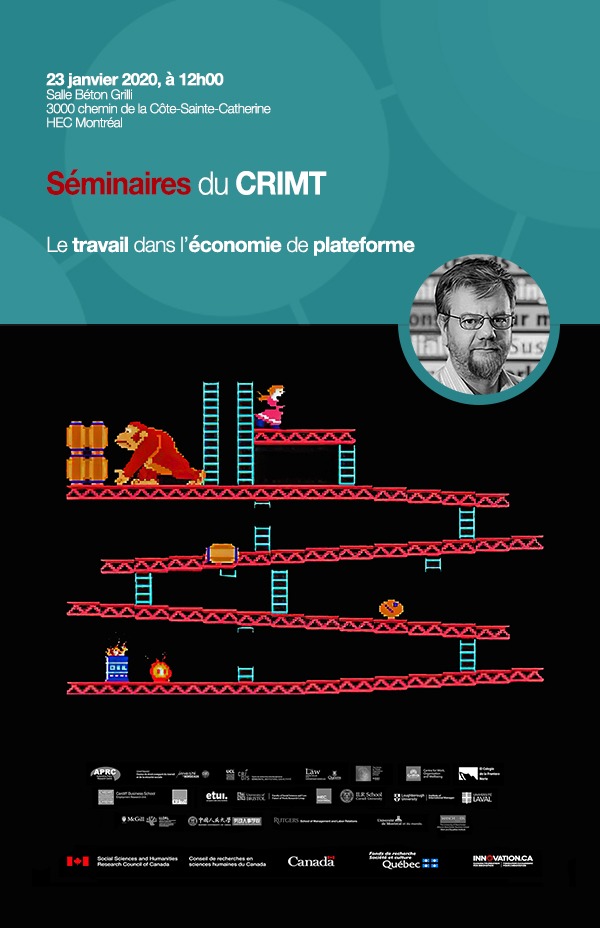
23 January 2020
Christophe Degryse (European Trade Union Institute)
Work in the Platform Economy
On Thursday, January 23, 2020, Christophe Degryse, head of the Foresight Unit at the European Trade Union Institute and co-researcher at CRIMT, gave a conference on work in the platform economy. The digitization of the economy has, in this decade of 2010, made a remarkable entry into the public debate in industrialized countries. Artificial intelligence, robotics, the Internet of Things, the widespread use of smartphones and tablets, and mobile applications ; it was enough to affirm that we were witnessing a new industrial revolution, the fourth of its kind. In this presentation, the author examined the potential impact of one of the products of the so-called 4th industrial revolution – namely the development of the platform economy – on work and the foundations of this social model.

8 January 2020
Romain Bertrand (IRISSO – Université Paris-Dauphine)
Artificial Intelligence (AI) in the Workplace: Building a “Virtual Assistant” in the Banking-Insurance Sector
Should we expect major transformations in employment and work due to the development of Artificial Intelligence (AI)? Is a wave of automation in the works because of the possibilities of these disruptive technologies?
Romain Bertrand, PhD candidate at IRISSO (Université Paris-Dauphine) and research intern at CRIMT, presented the main lines of his thesis, which aims to contribute to the sociological study of the workplace transformations brought by Machine Learning applications. The seminar was an opportunity for the author to share the first results of a survey (still in progress), which follows the development of a tool introduced by IBM consultants in one of France’s major insurance company.

17 October 2019
Xin Wang (The Chinese Academy of Social Sciences)
To Be a Respected World-class Company: The reform and development of large companies in China
This seminar, organized by CRIMT in collaboration with the Chair in Governance and Business Law of the Université de Montréal’s Faculty of Law, addressed the reform and development of large companies in China, one of the areas of interest of Professor Xin Wang, a researcher at the Chinese Academy of Social Sciences who specializes in SOE reform, governance and corporate social responsibility.

11 October 2019
Chiara Benassi (King’s College London)
How Do Employers Choose Between Different Types of Nonstandard Work? Costs, Control and Institutional Toying
With the growing range of non-standard jobs, it is important to consider how employers choose among these different types of occupations. Based on the existing literature, this seminar aimed to distinguish between non-standard contracts on the basis of cost and control and then to make proposals on how these differences influence employer choice. Chiara Benassi outlined four main mechanisms for institutional redesign and demonstrated how these strategies provide more opportunities for employers when choosing a non-standard type of employment.
Chiara Benassi teaches Human Resources Management at King’s College London. Her research focuses on comparative labour relations and the sociology of work.

4 October 2019
Hèla Yousfi (Université Paris Dauphine)
Social Movements and the Myth of Spontaneity. Analysis of the Process of Democratic Revolution in Tunisia
Recent events such as the Occupy wall street movements or what has been called the “Arab Spring” have provoked a renewed interest in the dialogue between two disciplines: the theories of organization and the theories of social movements. However, it is still difficult to emerge from a binary opposition between, on the one hand, a monolithic approach to organization in the analysis of the organizational challenges of social movements and an increasing mistrust of organizational bureaucracy that would suppress the capacity to disrupt the established order, on the other hand. Using an ethnographic approach, this seminar aimed to overcome this dichotomy by providing a detailed examination of the complex role played by the UGTT (General Union of Tunisian Labor) in the revolutionary process in Tunisia. The author showed that spontaneity and organization are different aspects of a protest movement and that they co-exist in a perpetual dialectical relationship. This work is also in dialogue with research on how the institutional and political context as well as internal organizational dynamics shape the development of a social movement and its impact/outcome.
Organized in collaboration with the Human Resources Management Department of HEC Montréal, this seminar explored the main lines of this argument. Hèla Yousfi is a lecturer at the University Paris-Dauphine-PSL. Her field of expertise is the sociology of organizations. She has worked and published on the influence of political culture on the functioning of companies in Arab countries.

3 October 2019
Ron McCallum (University of Sydney)
Being Born Blind, Becoming a Labour Lawyer and the Magic of Computer- based Adaptive Technology
Following the publication of his memoirs Born at the Right Time, Ron McCallum recounted in this seminar the great moments of his personal and professional life, and introduced us to the magic of adaptive computer technologies. A CRIMT-affiliated researcher, Ron McCallum has published numerous books, including The Legal Protection of Refugees with Disabilities. Forgotten and Invisible? but has also accomplished great things, such as chairing the United Nations Committee on the Rights of Persons with Disabilities.

9 April 2019
Peter Turnbull (University of Bristol)
Can work get any worse? Working in the Single European Market
In this seminar organized by CPOW, Professor Peter Turnbull drew on his work on transportation to touch on some of the themes of the CRIMT Project on Institutional Experimentation and Work Improvement.

An initiative of

15 March 2019
Rachid Filali-Meknassi (Université Mohammed V de Rabat)
CRIMT’s series of interviews with experts from the world of work
A member of the ILO Committee of Experts on the Application of Conventions and Recommendations, Rachid Filali-Meknassi is a doctor of law and former professor of higher education at Mohammed V University in Rabat. He is the author of numerous books on social and labour law. He is also interested in the issue of human rights and was one of the founders of the Moroccan Human Rights Association in the late 1970s. He is a member of the Higher Council of Education, Training and Scientific Research of Morocco, a consultant to national and international government agencies, including the World Bank, the United Nations Development Programme (UNDP), the Food and Agriculture Organization of the United Nations (FAO) and UNICEF, and was national coordinator of the project “Sustainable Development through the Global Compact”, ILO (2005-2008).
This master class made it possible to retrace Professor Filali-Meknassi’s professional career, and to address various issues related to the evolution of labour law and industrial relations in Morocco.

27 February 2019
Chang-Hee Lee (Director of the ILO office in Vietnam)
CRIMT’s series of interviews with experts from the world of work
Chang-Hee Lee, Director of the International Labour Organization’s Office in Vietnam, is one of Asia’s leading specialists in industrial relations, particularly in the Chinese and Vietnamese cases.
While in Montreal, he agreed to engage in an informal exchange with CRIMT’s co-researchers on the latest trends in labour and employment in Asia, as well as the research challenges posed by these changing work regimes.

5 December 2018
Fotios Bregiannis (UCLouvain)
The Right to Know in the Environment of the Multinational Enterprise (MNE) – A proposed model of corporate information regimes evaluation
Informational power is an important aspect of societal relations governed by hierarchy and/or inequality. The powerful party (the state, the MNE or other) exercises and reproduces its power through the control it exerts on sensitive information relevant to the minor party. Numerous legislative interventions at national or international level have the declared role to bridge this informational gap in the MNE. Those instruments have industrial relations, labour law and CSR backgrounds. But the question remains: How could we evaluate these instruments with coherent criteria? This intervention proposes a framework based on the information management concept of the information life-cycle.
In this intervention, Fotios Bregiannis, doctoral candidate at UCLouvain and an intern at CRIMT, proposed a framework based on the concept of information life cycle management.

5 December 2018
Kamila Moulaï (UCLouvain)
What Norms are Internalized by Workers in a Context of Coexistence with Machines? An exploration of cashier’s experience through the lens of ableism
The retail sector has profoundly changed the last decade. In her qualitative study, Kamila Moulaï investigates the individual impact of the co-existence of cashiers with an emerging form of machine, the self-service checkout. After a philosophical contextualization of the technical environment, she proposed to read norms internalized by cashiers and their logic from the lens of ableism. Whereas the literature on disability and ableism reveals the processes of a comparison with normative able human bodies, her study, rooted in Anders’ philosophical material, directs attention towards bodies that may conventionally be considered able, and yet are experiencing disability-related feelings when comparing themselves to a machine.
Through an in-depth analysis, the author revealed that there is a conceptualisation of the ideal worker that epitomises the characteristics of a machine, as well as a deep devaluation of the human subjective potential at work.

30 January 2018
Mary Crock & Ron McCallum (University of Sydney)
A New Kid on The Block: Australia’s Fair Work Ombudsman and The Protection of Vulnerable Workers
In this seminar, Mary Crock and Ron McCallum, both from the University of Sydney, outlined the history of the enforcement of wages under Australia’s classical conciliation and arbitration system. Originally only trade unions could enforce awards. However, in 1930, the Government appointed arbitration inspectors. With the advent of globalisation and the deregulation of Australian labour, trade union membership declined, and there was less capacity for trade union enforcement. The authors discussed arbitration inspectoral enforcement under the deregulated labour laws from 1996 -2007 and examined the work of the Fair work Ombudsman in investigating complaints and taking curial action to penalise recalcitrant employers and recover back-pay.

15 September 2017
Ruth Barton (University of Tasmania)
“Our Tarkine, Our Future”: The Australian Workers Union Use of Narratives Around Place and Community in West and North West Tasmania
On Friday, September 15, 2017, Ruth Barton, CRIMT co-investigator and professor at the University of Tasmania, delivered a conference entitled “OurTarkine, Our Future”: The Australian Workers Union Use of Narratives Around Place and Community in West and North West Tasmania, Australia.
The Australian Workers Union represents the miners on the West Coast of Tasmania. When the future of mining on much of the West Coast was threatened by the environmentalists’ proposed National Heritage listing of the Tarkine region, the union campaigned to prevent the listing. Using imagery and its embeddedness in place, the AWU was able to use a sense of place, memory and identity to construct a community campaign that moved beyond the West Coast into the North West Coast where many of the miners lived. The union was able to renew its narrative resources by moving work out of the workplace and into the Tarkine. In this way the AWU was able to mobilise community support and shift political power to the local where workers could regain control over their lives and the place where they lived and worked.

22 June 2017
Aiqing Zheng (Renmin University)
L’évolution récente du droit du travail chinois
On Thursday, June 22, 2017, Professor Aiqing Zheng, a researcher at the Faculty of Law of Renmin University, China, delivered a lecture at CRIMT entitled Recent Developments in Chinese Labour Law. Gilles Trudeau, co-researcher at CRIMT and professor at the Université de Montréal’s Faculty of Law, chaired the seminar.

17 May 2017
Guglielmo Meardi (University of Warwick)
Neoliberal Convergence or New Statism? European Integration and Changes in European industrial Relations Since Maastricht (1992-2017)
On Wednesday, May 17, 2017, Guglielmo Meardi, Professor of Industrial Relations and Director of the Industrial Relations Research Unit at the University of Warwick, delivered a lecture entitled Neoliberal Convergence or New Statism? European integration and changes in European industrial relations since Maastricht (1992-2017).
In this seminar, the author analyzed industrial relations change in the six largest EU countries since 1992 in relation to increased internationalisation pressures. Based on qualitative and quantitative analysis, it distinguishes between associational and state governance, and detects that despite a predominant, but not universal, trend of weakening trade unions and collective bargaining, no overall liberalisation has occurred in the political regulation of employment (employment policies, welfare state, labour law, state support to collective bargaining, public sector). The implication is that, against portrayals of one-dimensional neoliberal convergence, economic internationalisation interacts with state-specific political institutions and even provokes their reaction and tightening.
